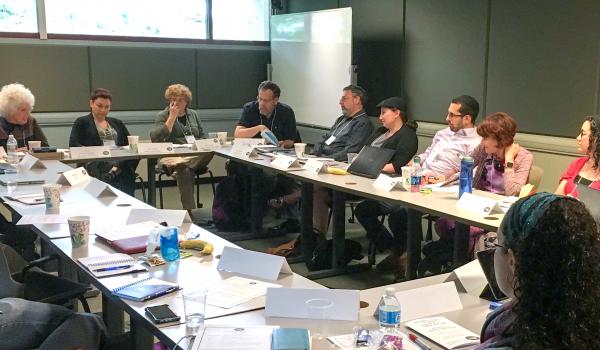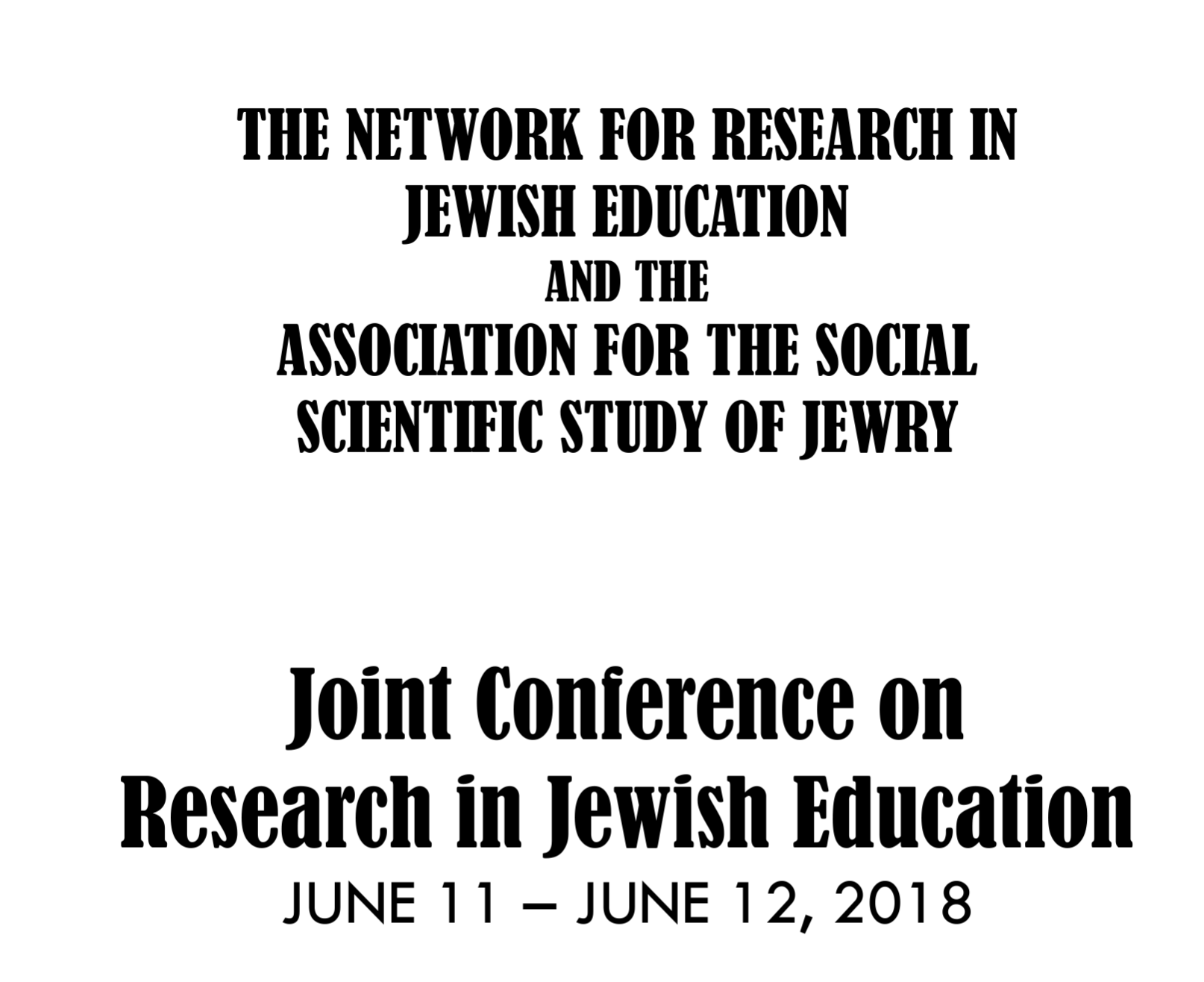Editor’s Note: At this year’s NRJE/ASSSJ Conference, CASJE supported a seminar/workshop for emerging scholars—eight doctoral candidates and postdoctoral researchers were joined by a group of eight mentors. Together they explored the challenges and opportunities in careers involving research in Jewish education and participated in a workshop that developed research questions provoked by CASJE’s “funder opportunity sheet” in the field of Jewish Peoplehood Education. CASJE is pleased to share reflections on the seminar from one of the emerging scholar participants.
This year’s Network for Research in Jewish Education (NRJE) conference left me feeling positive about my work as an emerging scholar of Jewish Education. I enjoyed participating extensively in the Inclusion track offered by the conference, giving my first research presentation about curriculum and attitude toward Disability in Jewish summer camp programs—which focused on vocational training for young adults—and helping to convene a Spotlight session that brought together diverse individuals to discuss a potential research agenda to learn more about the intersection of Disability and Jewish Education. I received constructive feedback and left with even more questions to ponder as I continue to advance in my doctoral program. Dayeinu.
Yet what really deepened my conference experience was the opportunity to participate in the Emerging Scholars Seminar. The Seminar brought together seasoned professors from a number of different sub-fields and institutions within Jewish educational research, as well as a group of emerging scholars, most of whom were still in graduate school. I really enjoyed working together as equals near the end of the Seminar to discuss a research agenda around Global Jewish Peoplehood, another topic of interest to me, as I worked closely with the Center for Jewish Peoplehood Education over the past year in New York thinking about how to bring Peoplehood concepts into real educational settings with practitioners from all over the metro area. Still, it was also important to take a step back and listen to the mentors’ experiences from years in the field, and how that might help us develop as researchers. I worked most closely with Professor Jeff Kress of The Jewish Theological Seminary, who I had met previously but had not yet engaged in more detailed conversations about his research and approach to scholarship.
As we sat with each other over meals and during other unstructured time, he offered me tremendous guidance in numerous areas of research and specifically on the hard copy version of my presentation that I eventually will submit for publication. My presentation, while generally well-received, included far too much information for a mere 20 minutes. The related paper I am developing for publication included even more data. Recognizing this, Professor Kress helped me select which data could best support my main argument and offered suggestions on how to structure the paper more tightly around that argument. I left my session with him with a substantial outline for a revised piece and the hard-won wisdom that not every piece of data collected on a project can fit into a single paper. In fact, Professor Kress helped me understand that the unused data can possibly be re-analyzed for a future piece.
Finally, Professor Kress and other mentors spoke on a panel about the positive habits of well-respected scholars. They each shared their different approaches to writing; one of the most important skills of researchers. In particular, a comment from Professor Amy Sales of Brandeis has stuck with me: “finding time for thinking made the eventual writing clearer and more efficient.” Perhaps the time to think about my still emerging scholarship was the greatest gift of the NRJE and the Seminar.
Daniel Olson is a PhD student in Education and Jewish Studies at NYU interested in better understanding how Jewish educational organizations create inclusive learning opportunities for all.




